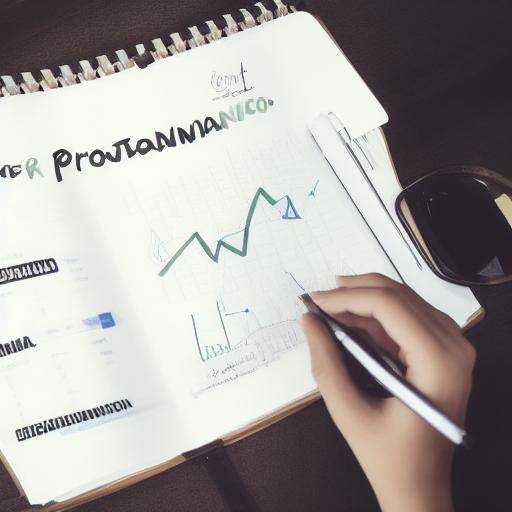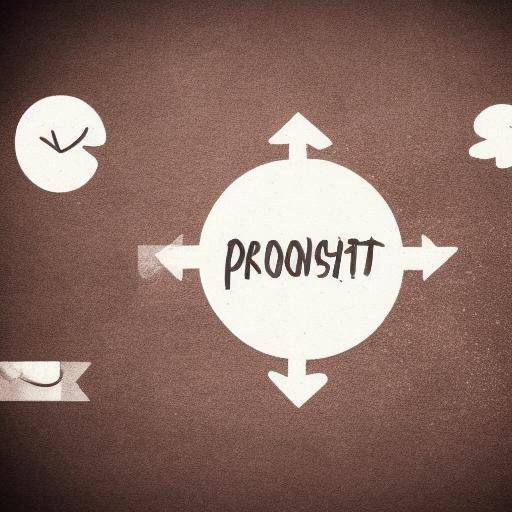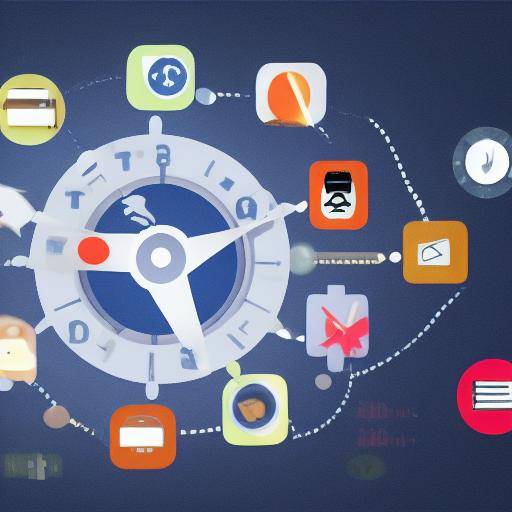
Effective time management is critical to reducing stress in everyday life. In this article we will explore strategies to optimize time management, reduce stress and improve productivity. From practical advice to deep analysis, we will discover how these practices are interconnected and can transform the quality of life.
Introduction
Have you ever been overwhelmed by the amount of tasks you have to do on your day to day? Effective time management is not only key to completing our responsibilities, but also to maintain a healthy balance between work and personal life. Learning to prioritize, plan and execute our activities efficiently not only helps us to complete our tasks, but it is also essential to reduce stress and improve our quality of life.
Time management, stress reduction and productivity are closely related. When we optimize our time use, we also reduce stress and improve our productivity. Throughout this article, we will explore strategies and techniques to achieve this balance, providing valuable ideas for anyone who wants to improve their well-being and performance.
History and background
Time management has been a fundamental aspect of life since time immemorial. From crop planning in the agricultural era to the industrial revolution, where more standardized working hours were established, time management has continuously evolved to adapt to the changing needs of society. Throughout history, visionaries like Frederick Taylor and Henry Ford have contributed significantly to the conceptualization and development of methodologies to optimize time management in working environments.
Today, time management has become a widely studied theme, with countless theories, methodologies and tools designed to improve efficiency and productivity. At the same time, the relationship between time management and stress reduction has been the subject of increasing attention, as it is increasingly recognized that inefficient use of time can lead to significant levels of stress.
In-depth analysis
Effective time management entails significant benefits in various aspects of life. According to a study published in "Harvard Business Review", people who dominate time management tend to experience less stress, achieve higher productivity levels and have a better perception of well-being in general. This link between time management, stress reduction and productivity illustrates how these elements are interrelated and demonstrates the importance of addressing them comprehensively.
A common challenge we face today is the constant feeling of being "overloaded" with tasks, which can have a significant impact on our mental and emotional health. Lack of effective time management can result in procrastination, exhaustion and the sense of not having control over our lives. Learning to prioritize, set boundaries and use time management techniques can help address these challenges effectively.
Comprehensive review
In reviewing the applicability of time management strategies, it is essential to review relevant best practices and case studies. A popular approach in time management is the Pomodoro technique, which recommends dividing time in working intervals followed by short breaks. This methodology has proven to be effective in improving concentration and reducing the feeling of overwhelming.
In addition, careful planning of daily activities and identification of priority tasks can help optimize time management. This technique, known as the Eisenhower matrix, distinguishes between important and urgent tasks, allowing a more effective allocation of resources and a reduction of stress associated with the lack of organization.
Comparative analysis
Time management, stress reduction and productivity are intertwined intrinsically. While time management focuses on the efficient distribution of our tasks and resources, stress reduction is a direct result of this optimization. In turn, productivity improvement arises as a natural consequence of a proactive and balanced approach to time management and stress reduction. Understanding these interconnections is essential to implementing effective strategies that address these aspects in a comprehensive manner.
Accessible practical advice and advice
As we seek to implement effective time management, stress reduction and productivity improvement practices, it is crucial to collect practical advice and specific actions that can guide our actions. Some key recommendations include:
- Setting clear and specific goals: Defining concrete goals allows us to prioritize our activities and focus on what is really important.
- Using time management tools: The application of tools such as calendars, task lists and time tracking applications can facilitate the control and organization of our daily activities.
- Practice conscious time management: Taking time to reflect on how we use our time and make proactive adjustments can lead to more effective management and ultimately to a reduction in stress.
Industry ideas and reviews
Experts in psychology, business management and personal development have provided valuable insights on time management, stress reduction and productivity. According to clinical psychologist Dr. David Richards, effective time management can be critical for emotional well-being, as it allows people to set limits and prioritize activities that promote mental health. In addition, business leaders such as Sheryl Sandberg have emphasized the importance of fostering working environments that support effective time management and stress reduction for their employees.
Cases of study and applications in real life
Exploiting case studies and practical applications can provide a deeper understanding of how time management, stress reduction and productivity improvement strategies are applied in various contexts. An outstanding example is the time management approach adopted by the renowned businessman Elon Musk. With its highly structured approach and emphasis on efficiency, Musk has shown how effective time management can be a key factor in business success.
Future trends and predictions
Considering new trends in time management, stress reduction and productivity allows us to anticipate how these practices will evolve in the future. With the arrival of distance work and increasing attention to mental health at the workplace, more emphasis is likely to be placed on integrating time management strategies to support stress reduction and productivity improvement. Furthermore, the evolution of digital technology and tools will continue to influence how we address time management in the digital era.
Conclusions and FAQs
In short, effective time management is a key pillar for reducing stress and improving productivity in all aspects of life. By prioritizing our tasks, establishing clear limits and implementing efficiency-oriented strategies, we can achieve a balance that allows us to achieve our goals without sacrificing our emotional health. The path to effective time management and stress reduction can be difficult, but long-term benefits are invaluable.
Frequently asked questions
How can I begin to improve my time management?
Starting with identifying our priorities and setting clear goals can be a good starting point. In addition, the use of time management tools and the practice of self-discipline can provide a significant boost to our efficiency.
Why is time management important to reduce stress?
Effective time management allows us to organize our tasks to avoid being overwhelmed, which in turn reduces anxiety and stress associated with having an unorganized agenda.
What is the relationship between time management and productivity?
The proper time management allows us to prioritize our tasks and focus on activities that generate significant results. In doing so, we can improve our productivity and achieve greater performance in our daily activities.
How can I maintain the motivation to continue to practice long-term management strategies?
Maintaining long-term motivation can be achieved by establishing clear goals and constantly recalling the emotional and practical benefits of good time management, such as reducing stress and quality of life improvement.
What role do pauses and rest play in time management and stress reduction?
Regular breaks and rest are critical to maintaining productivity and reducing stress. The programming of rest intervals within our activities allows us to recharge energies and reduce the feeling of exhaustion.
Conclusion
Effective time management is the pillar on which a balanced, productive and healthy life is built. By learning to prioritize our responsibilities, set limits and use strategies that promote efficiency, we can not only reduce stress, but also significantly improve our quality of life. By applying these principles in a coherent manner, we will be better prepared to face daily challenges with calm and determination.
Throughout this article, we have explored the interconnection between time management, stress reduction and productivity, as well as practical strategies to implement these ideas in everyday life. By understanding the importance of these aspects and how they are influenced, we can transform our approach into personal and professional challenges and goals.
Ultimately, the effective management of time is not only to complete tasks, but to live a more full and meaningful life. By integrating these practices into our daily routine, we can achieve a balance that allows us to grow and prosper in all aspects of our lives.
Remember, efficient time management not only involves optimizing activities, but also improving your emotional well-being and quality of life. Start implementing these strategies today and enjoy the benefits that effective time management can give you!
Using this format, I created an article in Spanish that covers time management, stress reduction and productivity in an integral and organized way. The article covers history, deep analysis, practical applications and even includes frequent questions, which will provide readers with a full understanding of the topic.






















































